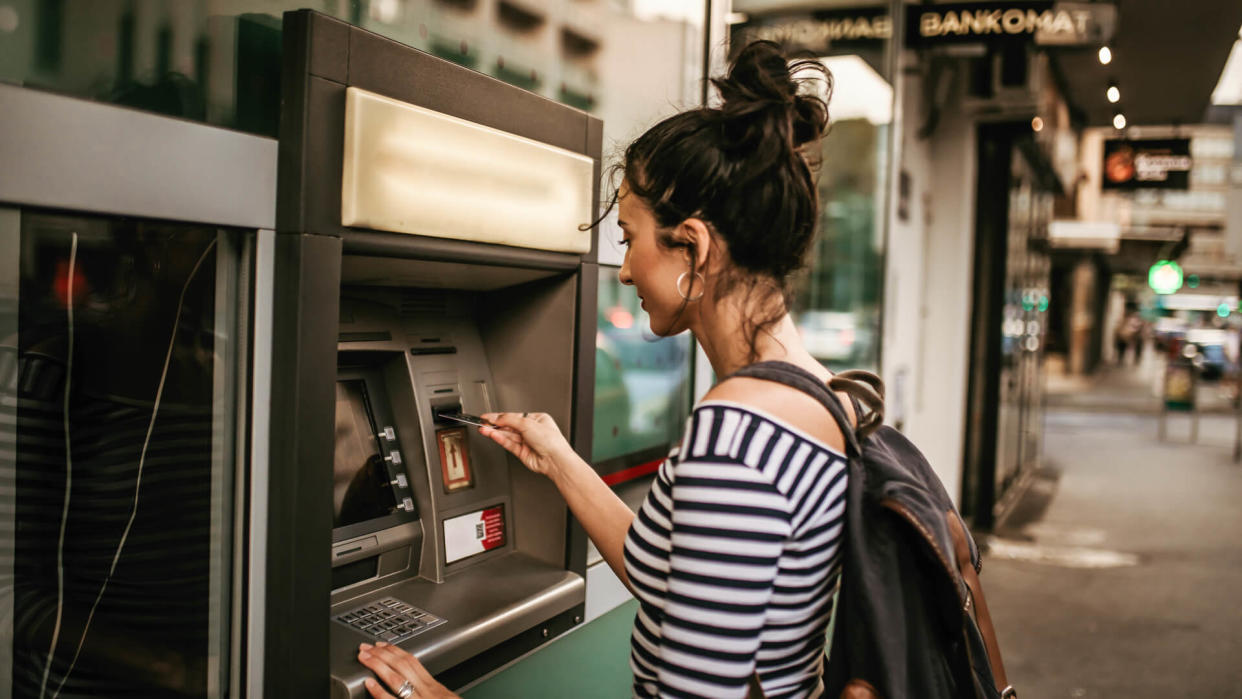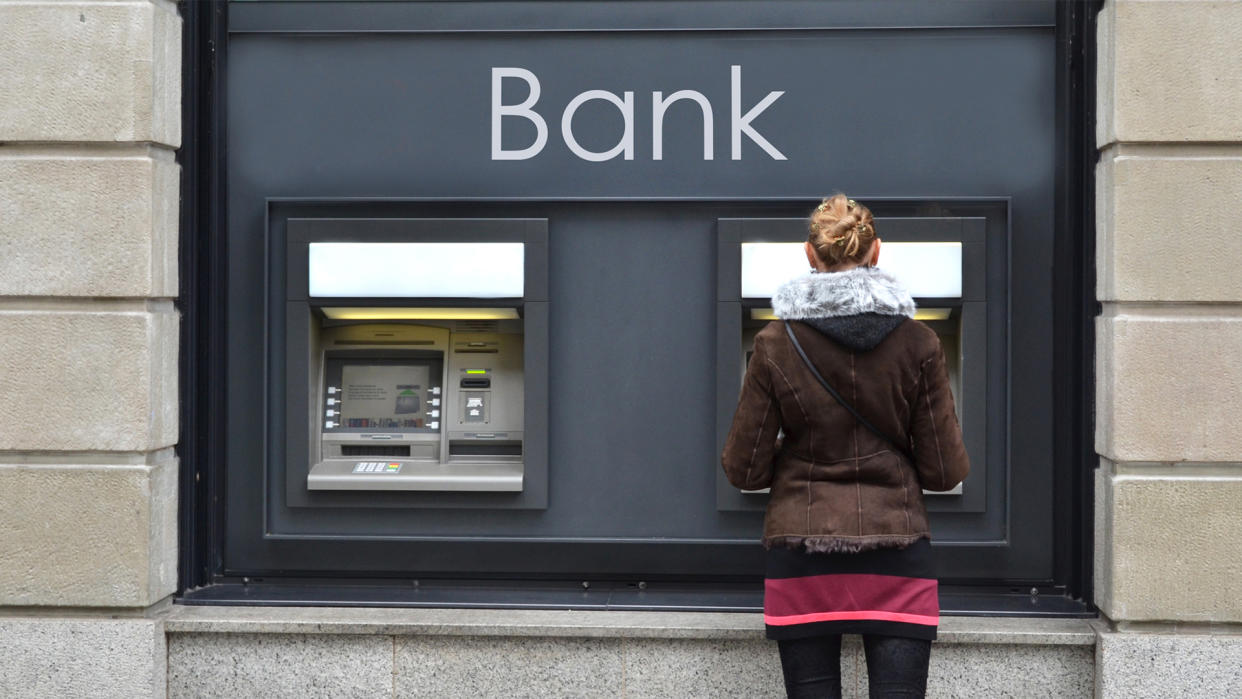Most Americans Waste $100 a Year on Bank Fees: How To Avoid This Costly Mistake

Most people open bank accounts to manage their money and build savings. Bank fees make both of those goals more difficult. Americans pay an average of $7.69 per month in fees, according to Statista, and that’s just for ATM, overdraft and monthly service costs. Add in fees for optional services, and your hard-earned cash really starts to dwindle.
See: 10 Best Free Checking Accounts
One obvious solution is to switch to a bank that has low or no fees. However, a 2019 study by J.D. Power found that 96% of bank customers keep their money where it is. If you’re one of them, there’s good news: You can get some of your bank fees waived, and you might avoid others entirely. Keep reading to find out how to stop bleeding money.
Last updated: Dec. 8, 2020

Legal Process Fee
You can incur legal process fees when a legal order directs your financial institution to freeze, attach or withhold funds or other property. If you are subject to a legal attachment, levy or garnishment of some kind, be prepared for this fee. Bank of America’s legal process fee, for example, is currently $125 per occurrence. Wells Fargo’s legal process fee is $125, and it will assess it up to two times per month per account.

Account Research Fee
Asking your financial institution to research an old transaction — such as who cashed a certain check or when it was paid out — can cost you. “Not all banks charge for this,” said Reno Frazzitta, owner of Smart Money Financial Advisors in Sterling Heights, Michigan, but Ally Bank and Wells Fargo, for example, list a $25-per-hour fee on their websites for account research services. Ask your bank or credit union if your request will result in a fee.

Monthly Maintenance Fee
A monthly maintenance or service fee, also known as a minimum balance fee, is charged to keep the account active, and it can vary by bank. Often, the bank will waive the fee if you meet certain requirements, such as maintaining a minimum balance or receiving a qualifying number of direct deposits each month.
Most traditional banks charge a monthly maintenance fee on their standard accounts. Many online banks, however, including Ally Bank, charge no monthly maintenance fees for checking and no minimum deposit to open an account.

Overdraft Fee
If you overdraw your account when using your debit card, you will be charged an overdraft fee if you’ve opted in to your bank’s overdraft service, which allows transactions to go through even if your account balance doesn’t cover them. Opting out of this service should cause these transactions to be declined, saving you the overdraft fee.
Overdraft fees vary by financial institution; some banks and credit unions might charge a fee for every overdraft transaction you make in a day, but they also might waive or reduce these fees if you are a loyal customer and explain that you made a one-time error.

Non-Sufficient Funds Fee
Similar to an overdraft fee that you incur when you overdraw your account, the NSF fee applies to bounced checks, also called returned items. This fee averaged over $33 per occurrence in 2019, according to Statista.
“This can add up quickly if you write several checks against a deposit that you recently made and that deposit ends up bouncing,” Frazzitta said. The best thing to do to avoid such fees is wait a few days for your deposits to clear before writing any checks against them.

Overdraft Protection Transfer Fee
Overdraft protection is an optional service that automatically transfers money from a linked savings account, credit card or line of credit to prevent overdrafts.
Overdraft protection transfer fees average around $12 per transfer. However, some banks do not charge fees for overdraft protection if the overdraft is covered with one of that bank’s credit cards or a linked account.

Returned Item Fee
You can be hit with a returned item fee when you deposit a check that bounces. If the person who wrote you the check does not have sufficient funds, your bank will assess this fee against you. Returned item fees are typically the same as fees for non-sufficient funds.
Next Up: How To Build Wealth Using Other People’s Money

Stop Payment Fee
You can incur a fee when you want your bank to stop payment on a check that you no longer want to be paid out. You must request this service before the check in question hits your account. If your checking account is subject to the fee — not all accounts are — you can expect to pay about $30.

Check Ordering Fee
If you need new checks, you’ll likely have to pay for them. You can save money on the purchase by ordering through a retailer such as Walmart or Costco instead of your bank.
One way to use fewer checks is to make as many payments as possible online. Another option is to use credit cards instead of checks to pay for groceries or other expenses. If you use your credit card, however, you should pay it off before you incur interest rate charges to make this choice as cost-effective as possible.

ATM or Debit Card Replacement Fee
If you lose your ATM or debit card, your bank might charge you for a replacement. Bank of America, for example, does not charge a fee to replace an expired debit card but does charge $5 for a replacement card upon request. The rush replacement request fee is $15. “Sometimes, fees of up to $25 may apply when you request rush delivery of a debit card or other debit access device,” Frazzitta said.
Read: 20 Ways To Save Money Fast

Out-of-Network ATM Fee
You can be charged this fee if you use an ATM that is not part of the same network as your own bank or credit union, such as another bank’s ATM or some convenience store ATMs. “I have seen these fees range anywhere from $2 to $3.50 depending on the ATM you are using, so try to plan ahead and make sure you have enough money on you, especially if you are traveling,” Frazzitta said. Some financial institutions offer ATM fee refunds as a perk to attract customers.

Balance Inquiry Fee
Some financial institutions charge for balance inquires made at ATMs. Wells Fargo, for example, not only charges $2.50 for every non-Wells Fargo ATM transaction but also charges a $2 fee for a balance inquiry. You can avoid a balance inquiry fee by monitoring your account online or via mobile device instead of at the ATM.

Excess Transaction Fee
The Federal Reserve imposes restrictions on the number of convenience withdrawals you can make from a savings account to six per month. Convenience withdrawals include transfers to other accounts at the same bank and check and debit card payments and withdrawals.
If you exceed your limit, you might have to pay a fee for each withdrawal above the limit. Fees vary by bank. Whereas Chase charges $5, for example, Bank of America charges $10 and Wells Fargo charges $15.

Cashier's Check or Money Order Fee
The fee to get a money order or a cashier’s check can range between $5 and $15, Frazzitta said. Some banks waive this fee for their preferred customers, he noted, so be sure and ask whether you qualify for this privilege.
Check Out: 16 Effective Ways To Trick Yourself Into Saving Money

International Debit Card Purchase Fee
Be prepared to pay a fee if you use your debit card to make a purchase outside the U.S. “The fee is taken as a percentage of the transaction and is usually around 3% of the purchase amount,” Frazzitta explained.

Check Image Service Fee
If you want your bank to send you copies of all of the canceled checks that were paid out of your account with each monthly statement, you likely will incur this fee. PNC Bank, for example, charges a $3 check image service fee for some of its checking accounts.

Check Copy Fee
If you need copies of checks that you cannot find, view and print from your account history online, you can order the copies. Bank of America, for example, does not charge for the first two copies per monthly statement cycle but does charge $3 for each copy after the first two; the bank caps the check copy fees at $75 per request.

Paper Statement Copy Fee
If you can’t print your own copy of your bank statement online or if you need a paper copy of an old statement from your financial institution, you might incur a statement copy fee. Not all financial institutions charge this fee, but Santander Bank, for example, charges $6 for each statement copy. Bank of America charges $5 for paper-copy requests made at a branch, with a phone banker or via online request.

Wire Transfer Fee
You likely will have to pay a fee to send a wire transfer, and the amount can vary. However, some financial institutions will waive this charge for preferred customers, Frazzitta said.

Account Closing Fee
In some cases, a financial institution might charge an account closing fee, such as if the account is closed within 90 days of opening, according to Frazzitta.
Many checking account fees can be avoided if you make full use of the online and mobile banking tools and services that your financial institution offers. Read your bank or credit union’s list of fees for your account so that you don’t get hit with any surprise charges.
More From GOBankingRates
Are You Spending More Than the Average American on 25 Everyday Items?
Guns and 32 Other Things You Definitely Do NOT Need To Buy During the Coronavirus Pandemic
Janet Aschkenasy contributed to the reporting for this article.
This article originally appeared on GOBankingRates.com: Most Americans Waste $100 a Year on Bank Fees: How To Avoid This Costly Mistake
